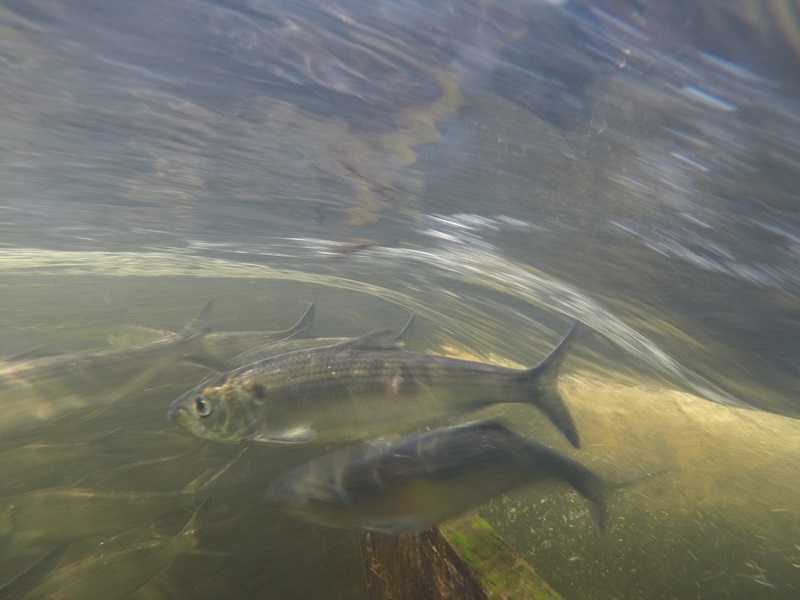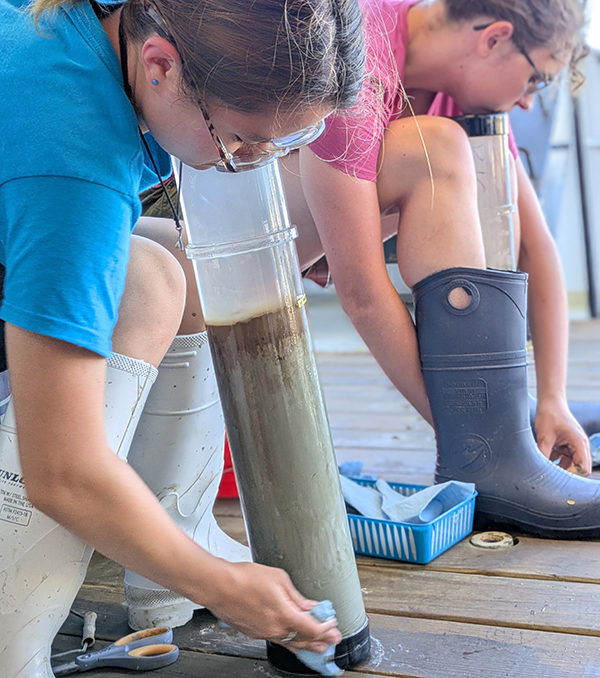Gulf Council to Hold Public Hearings on Deep-Water Grouper – Outdoor Wire

Report on Public Consultation for Sustainable Deep-Water Grouper Management in Alignment with UN Sustainable Development Goals
Introduction and Mandate
The Gulf of Mexico Fishery Management Council (Gulf Council) has announced a series of public hearings concerning Draft Reef Fish Amendment 58B. This initiative focuses on modifications to the management of the deep-water grouper complex, a critical step towards ensuring the long-term health and sustainable use of marine resources. This action directly supports the United Nations’ Sustainable Development Goal 14 (SDG 14): Life Below Water, which calls for the conservation and sustainable use of oceans, seas, and marine resources.
Addressing Overfishing and Promoting Marine Ecosystem Health
Alignment with SDG 14: Life Below Water
A recent stock assessment for yellowedge grouper, a key species within the deep-water grouper complex, has indicated that the stock is currently subject to overfishing. This finding necessitates immediate management action to restore the stock and prevent further ecosystem degradation, in direct alignment with SDG Target 14.4, which aims to end overfishing and implement science-based management plans to restore fish stocks to sustainable levels. The Council’s proposed measures are designed to protect the entire deep-water grouper complex, thereby contributing to SDG Target 14.2: to sustainably manage and protect marine and coastal ecosystems.
The deep-water grouper complex includes:
- Yellowedge Grouper
- Warsaw Grouper
- Snowy Grouper
- Speckled Hind
The proposed amendment seeks to reduce harvest levels for yellowedge grouper and associated species, modify sector allocations, and enhance recreational accountability measures. These actions are fundamental to achieving responsible production and consumption patterns as outlined in SDG 12 (Responsible Consumption and Production) by ensuring the sustainable management of natural resources.
Public Engagement and Stakeholder Collaboration
Fostering Partnerships in Line with SDG 17
The Gulf Council is facilitating a transparent and inclusive public comment period through a series of hearings. This process exemplifies a commitment to SDG 17: Partnerships for the Goals, specifically Target 17.17, which encourages effective public and civil society partnerships. By soliciting input from all stakeholders, the Council ensures that the resulting management plan is robust, equitable, and built upon a foundation of collective experience and responsibility. The long-term viability of these fisheries is crucial for coastal economies, linking sustainable management to SDG 8 (Decent Work and Economic Growth).
Schedule of Public Hearings
All hearings will commence at 6:00 PM and conclude by 9:00 PM local time.
In-Person Hearings
-
Madeira Beach, Florida
Monday, August 11, 2025
City of Madeira Beach Recreation Civic Center, 200 Rex Place, Madeira Beach, FL 33708 -
Panama City, Florida
Thursday, August 14, 2025
Hilton Garden Inn, 1101 US Hwy 231, Panama City, FL 32405 -
Ft. Myers, Florida
Monday, August 18, 2025
Doubletree by Hilton, 13051 Bell Tower Drive, Ft. Myers, FL 33907
Virtual Hearing
-
Webinar
Tuesday, August 19, 2025
SDGs Addressed or Connected to the Issues Highlighted
SDG 14: Life Below Water
- The article’s entire focus is on the management of marine life, specifically the “deep-water grouper complex.” The central issue discussed is that the “yellowedge grouper stock is undergoing overfishing,” which directly threatens marine biodiversity and ecosystem health. The actions of the Gulf Council, such as creating “fishery management plans” and proposing modifications to “reduce yellowedge grouper harvest,” are core activities related to the conservation and sustainable use of ocean resources, which is the primary objective of SDG 14.
Specific Targets Identified
SDG 14: Life Below Water
-
Target 14.4: By 2020, effectively regulate harvesting and end overfishing, illegal, unreported and unregulated fishing and destructive fishing practices and implement science-based management plans, in order to restore fish stocks in the shortest time feasible, at least to levels that can produce maximum sustainable yield as determined by their biological characteristics.
- The article directly addresses this target by stating that a “yellowedge grouper stock assessment indicated the stock is undergoing overfishing.” The Gulf Council’s subsequent obligation to “reduce yellowedge grouper harvest” and develop “Draft Reef Fish Amendment 58B” is a clear attempt to regulate harvesting and end overfishing through a science-based management plan.
-
Target 14.b: Provide access for small-scale artisanal fishers to marine resources and markets.
- This target is relevant because the Council is “considering modifying sector allocations and recreational accountability measures.” These allocations determine how fishing rights are distributed among different groups (e.g., commercial, recreational), which directly impacts the access various scales of fishers have to marine resources.
-
Target 14.c: Enhance the conservation and sustainable use of oceans and their resources by implementing international law as reflected in UNCLOS, which provides the legal framework for the conservation and sustainable use of oceans and their resources.
- The article notes that “The Gulf Council is one of eight regional Fishery Management Councils established by the Fishery Conservation and Management Act of 1976.” This demonstrates the implementation of a national legal and institutional framework designed to “manage fishery resources,” which aligns with the principles of implementing legal frameworks for ocean conservation as promoted by this target.
Indicators Mentioned or Implied
SDG 14: Life Below Water
-
Indicator 14.4.1: Proportion of fish stocks within biologically sustainable levels.
- This indicator is directly implied through the mention of the “latest yellowedge grouper stock assessment.” Such assessments are the primary tool used to determine if fish stocks are at biologically sustainable levels. The article’s conclusion that the stock is “undergoing overfishing” is a direct measurement related to this indicator, showing that this specific stock is outside sustainable limits.
-
Indicator 14.b.1: Progress by countries in the degree of application of a legal/regulatory/policy/institutional framework which recognizes and protects access rights for small-scale fisheries.
- The “Draft Reef Fish Amendment 58B” and the proposed modifications to “sector allocations” represent a tangible regulatory framework being developed. The process of holding public hearings to create and refine this amendment is a clear example of progress in applying a framework that governs access rights for different fishing sectors.
-
Indicator 14.c.1: Number of countries making progress in ratifying, accepting and implementing through legal, policy and institutional frameworks, ocean-related instruments that implement international law…
- The existence and ongoing work of the Gulf Council, established by a national law (the “Fishery Conservation and Management Act of 1976”) to create “fishery management plans,” serves as concrete evidence of the United States implementing a legal and institutional framework for ocean conservation, which is what this indicator measures.
Summary of SDGs, Targets, and Indicators
| SDGs | Targets | Indicators |
|---|---|---|
| SDG 14: Life Below Water | 14.4: Effectively regulate harvesting and end overfishing… and implement science-based management plans… | 14.4.1: Proportion of fish stocks within biologically sustainable levels. (Implied by the “yellowedge grouper stock assessment” finding of “overfishing”). |
| SDG 14: Life Below Water | 14.b: Provide access for small-scale artisanal fishers to marine resources and markets. | 14.b.1: Progress by countries in the degree of application of a legal/regulatory/policy/institutional framework… (Evidenced by the “Draft Reef Fish Amendment 58B” and modifications to “sector allocations”). |
| SDG 14: Life Below Water | 14.c: Enhance the conservation and sustainable use of oceans and their resources by implementing international law… | 14.c.1: Number of countries making progress in… implementing through legal, policy and institutional frameworks… (Evidenced by the existence and function of the Gulf Council under the “Fishery Conservation and Management Act of 1976”). |
Source: theoutdoorwire.com

What is Your Reaction?
 Like
0
Like
0
 Dislike
0
Dislike
0
 Love
0
Love
0
 Funny
0
Funny
0
 Angry
0
Angry
0
 Sad
0
Sad
0
 Wow
0
Wow
0













































































